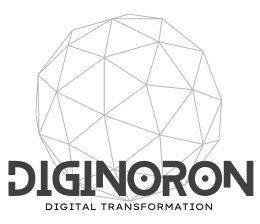Despite the buzz around tech layoffs, the reality is that the tech hiring market remains fiercely competitive, with a growing demand for specialized talent to fill crucial roles, especially in areas like artificial intelligence (AI) and cybersecurity. The need for skilled professionals continues to outpace supply, creating significant opportunities for job seekers.
According to the World Economic Forum, the fast pace of technological advancements will require 60% of workers to upskill by 2027. PwC research further reveals that over half of employees believe their current roles demand specialized training. Korn Ferry forecasts that by 2030, 85 million jobs worldwide may go unfilled due to a shortage of skilled workers, resulting in $8.5 trillion in unrealized annual revenues.
To address this pressing skills gap, tech companies are taking innovative steps. Platforms like Indeed’s Tech Network are helping organizations tap into passive talent pools, while others are turning their focus to an often-overlooked source of talent: neurodivergent individuals.
Harnessing Diverse Minds
Leading tech giants like SAP, Microsoft, HP, Dell, Salesforce, and IBM are rethinking their hiring strategies to embrace neurodiverse talent. By doing so, they are not only enhancing their diversity, equity, and inclusion (DE&I) initiatives but also unlocking a wealth of unique skills. Neurodivergent individuals, including those with autism, ADHD, dyslexia, and OCD, bring a distinctive set of strengths that can be especially valuable in tech roles.
Why is this so important? For one, research shows that companies that prioritize diversity, including neurodiversity, tend to outperform their competitors financially. But beyond this, neurodivergent individuals often possess innate abilities well-suited to tech roles—whether it’s exceptional pattern recognition, hyper-focus, or keen attention to detail—skills that are invaluable in fields like data analytics, machine learning, and cybersecurity.
Many tech roles list attributes like analytical thinking, independent problem-solving, and modeling expertise as key requirements. Neurodivergent individuals often excel in these areas, providing a natural fit for the demands of the industry.
Opportunities in a Growing Landscape
Curious about current opportunities in tech? The tech industry’s demand for talent remains strong across a range of roles. Below are a few examples of positions that may align with your interests:
-Cyber Threat Intelligence Analyst, UBS, London, UK
In this role, you’ll be at the forefront of protecting a large financial firm from cyber threats. You’ll monitor, analyze, and assess risks, while creating detailed threat intelligence reports.
– Identity Cybersecurity Consultant/Manager, Accenture, Munich, Germany
As an expert in identity and access management (IAM), you’ll advise clients on security strategies, implement cutting-edge solutions, and help optimize security frameworks.
– Senior AI Consultant, Atos, Bezons, France
Join a leading AI team and guide clients on their AI implementation journeys, leveraging expertise in MLOps, data architecture, and cloud technologies.
As the tech industry evolves, so too does its understanding of the value that neurodivergent talent brings. By embracing this diversity, companies not only close the skills gap but also gain a competitive edge in the rapidly advancing world of technology.


